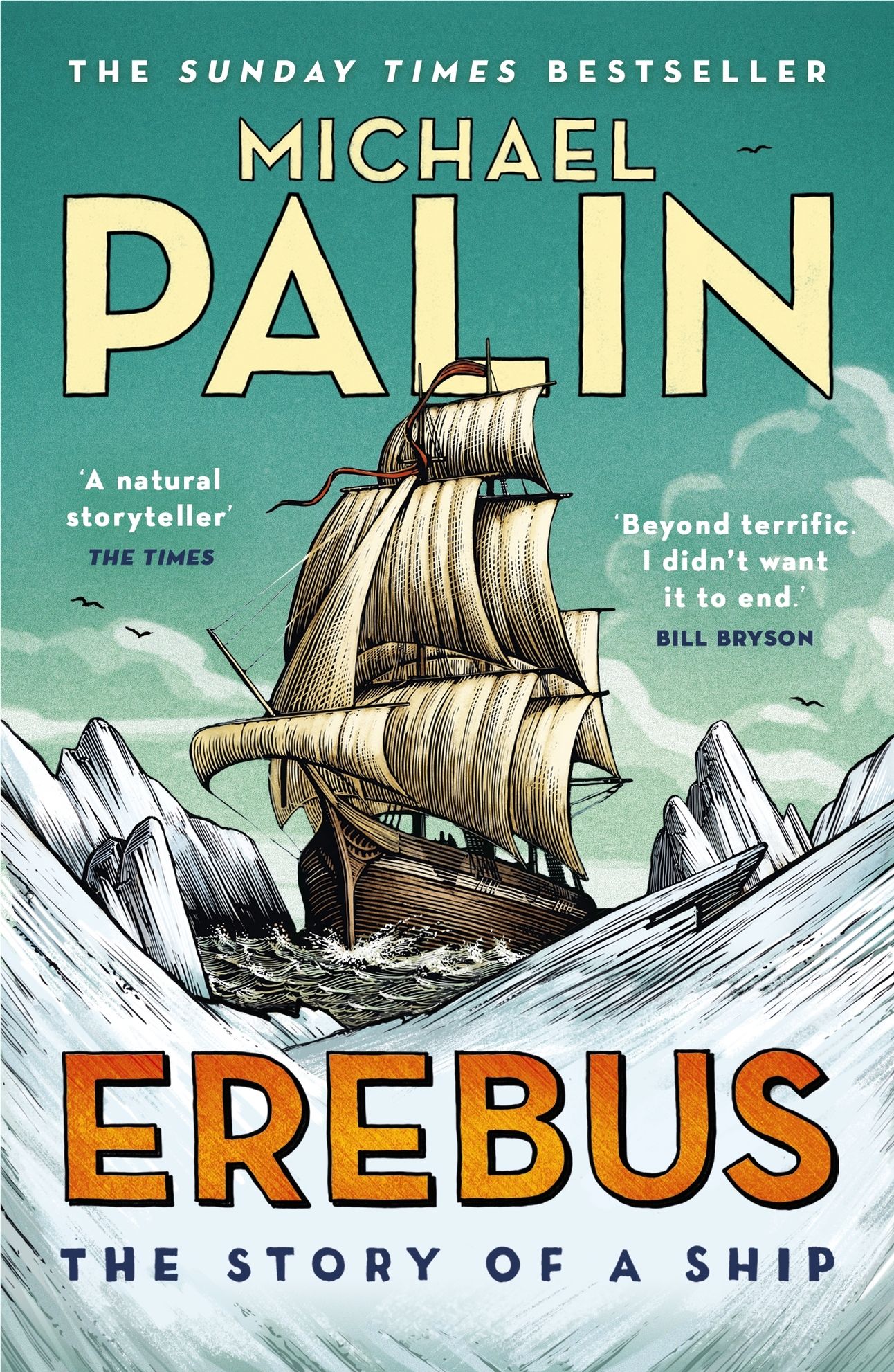
I remember sitting around the TV as a kid and watching Monty Python on PBS along with the rest of the family. The off-the-wall British humor was much appreciated by everyone in our household.
By college age I was taking in the Monty Python movies. Monty Python & the Holy Grail, Life of Brian, The Meaning of Life - I saw each of them in the theater.
The members of Monty Python have long ago gone on to other things. That includes Michael Palin who has made a success out of travel TV shows and as an author of several books. In this book Palin focuses on a single ship, and it’s one with an impressive story to tell.
Anyway, on to the book review.
Subtitled "The Story of a Ship" this book tells the story of the Erebus, a 19th century "bomb vessel" - a naval warship designed to fling mortar over coastal defenses. This ship, however, never saw battle. Instead, it became famous, along with its companion the Terror, for its journeys to both the Antarctic and the Arctic, the last of which ended very badly.

Author Michael Palin. Photo Source: The National Churches Trust from London, CC BY 2.0, via Wikimedia Commons
Erebus was commissioned in 1823 and slid down the slipway at Pembroke Dockyard in 1826, at a cost to the Royal Navy of £14,603. She patrolled the Mediterranean for a few years but the end of the Napoleonic Wars meant she never served as a warship after that. After her stint in the Mediterranean Erebus spent several years "exchanging one dockyard for another."
But then the age of polar exploration began, and in 1839 Erebus was called out of what had amounted to a premature retirement to be refitted as a polar exploring ship under the command of James Clark Ross. Her fellow bomb vessel Terror also joined Ross's expedition of discovery to Antarctica, charged with planting the British flag at the South Pole.
The Antarctic expedition was an epic voyage. Both vessels ventured farther south than any sailing ships before them and discovered the continent of Antarctica. But they were not able to make it to the South Pole (and no one else would for some 70 years). After four years Erebus and Terror returned to the UK in 1843 to a "respectful but muted" reception, despite all that they had achieved. The muted response was likely due to the fact that they had been away a long time, and that their leader Ross was not "the sort of man to court public opinion with constant reports of progress".

The cover of Michael Palin’s ‘Erebus’
The success of Ross's Antarctic expedition ironically stirred up renewed interest in the Arctic, and before long an expedition was being proposed to finally find the way through the last 100 or so miles of the Northwest Passage that were then still unexplored. As Erebus and Terror had proven themselves under Ross to be successful ice ships, it was felt that they’d be perfect for this new journey. The two ships were fitted out with the latest technology and in May of 1845 the new Arctic expedition sailed out the Thames under the command of John Franklin.
They made stops in the Orkney Islands and in Greenland. Finally, on July 13, 1845, Erebus and Terror set sail for Baffin Bay in Canada. They were sighted by a couple of ships at Baffin Bay in later July but other than that no news from the expedition was ever forthcoming.
By 1848 the first of many voyages were commissioned to find the Franklin Expedition. The full story of what happened to them is still not known with certainty, though enough clues have been found in the intervening years to establish the essential facts, and to serve as the basis for several books. Today, we can piece most of the story together and Palin does a great job of telling it. What we do know with certainty is that all hands were lost, most likely to starvation. Cannibalism is thought to have been involved at the desperate end.
In 2014 "an armada" of ships of the Canadian Navy and Parks Canada located the wreck of the Erebus, bringing her story to the present day. In 2016 the wreck of her companion the Terror was also discovered.
RATING: Three and a Half Stars ⭐⭐⭐🌠
RATING COMMENTS: I listened to the audiobook, and the familiar voice of Michael Palin lent much to the story - he is a great story teller. The structure of the book, following a single ship from commissioning to sinking and beyond is unique (at least in my experience) and made a great frame for Palin’s storytelling.
If you are not familiar with the Ross or Franklin expeditions then this book / audiobook would serve as an excellent introduction.
WHERE I GOT MY COPY: I purchased a paperback copy of this book on a trip to Canada a few years ago, and it’s been on my “to be read” pile since. When it finally came time to read it I was traveling and didn’t have my book with me, so I opted to listen to the audiobook version downloaded from Everand (formerly known as Scribd).
See What Others Think
The Guardian: The story of Franklin’s ship found on the Arctic seabed
The Scotsman: Book review: Erebus - The Story of a Ship, by Michael Palin
Title: Erebus: The Story of a Ship
Author: Michael Palin
US Publisher: Greystone Books
Publish Date: October 8, 2019
ISBN-13: 9781771645720
Publisher’s List Price: $28.00 CAD (Hardcover price - the paperback is available in the US for $16.95 )
